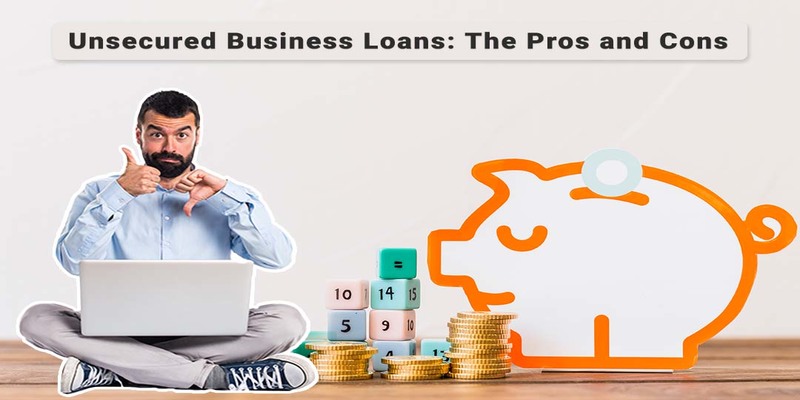Finance
Unsecured Business Loans: The Pros and Cons
An unsecured business loan is a type of business loan that does not require any collateral to secure it. When applying for unsecured business loans, lenders will look largely at the company’s credit history.

Whether you operate a startup business or an established brand, there will no doubt be instances when working capital is stretched and a cash injection is required. In times of financial woe, most businesses look at business loans, with business loans being a quick and easy way to bring large sums of money into the business and pay it back over a predetermined period of time.
If you are comparing business loans, you will quickly notice the sheer volume of options out there; all of which boast different advantages and disadvantages to the lender. However, one of the most in-demand business loan types is unsecured business loans.
What is an unsecured business loan?
An unsecured business loan is a type of business loan that does not require any collateral to secure it. When applying for unsecured business loans, lenders will look largely at the company’s credit history.
By contrast, a secured loan will be backed up by assets such as property, equipment, or any other valuable items; assets that can be seized by lenders should the loan not be repaid.
The pros of unsecured business loans
There are evident benefits to unsecured business loans. Below are a few notable advantages:
- Not having to put any of your assets in a state of vulnerability: Your business’ assets are hugely important to your business’s financial health and value. This is why protecting them at all costs will understandably be the priority. When taking out an unsecured loan, the lender will instead require a Personal Guarantee.
- A quick solution to cash flow problems: Unsecured business loan applications are relatively straightforward, with lenders making decisions on cases usually within 24 hours. For this reason, they are used commonly by companies in need of funds quickly.
- Flexible terms: The number of companies offering unsecured business loans is extensive, meaning the options available to businesses are great. Now, businesses can secure all types of loans with all types of repayment requirements, meaning there will be a loan option that’s flexible enough to meet your business needs.
The cons of unsecured business loans
Like any finance facility, there are cons associated with taking our unsecured business loans. If you are seeking additional working capital via an unsecured loan, you should be aware of the below cons.
- Personal Guarantees: Lenders will require a Personal Guarantee for business loans. This means that should the business fail to make the repayments, the responsibility will fall on the individual.
- Qualification criteria: When applying for an unsecured business loan, the lender will understandably have certain criteria that you will be required to meet, requesting various documents from you in order to gauge affordability. These could include recent accounts and bank statements.
So, there you have it; the pros and cons of unsecured business loans. If this blog has identified that an unsecured business loan is a right option for your company, contact Simply Factoring Brokers today and request a free, no-obligation quote. As whole-of-market brokers, they can access the best products and negotiate the best fees with their enormous panel of funders.
-

 Home and Garden6 days ago
Home and Garden6 days agoTransform Your Space: A Guide to Minimalist House Interior Design in 2025
-

 Home & Family7 days ago
Home & Family7 days ago10 Essential Cleaning Hacks for Bathroom Surfaces You Need to Try
-

 Health & Fitness6 days ago
Health & Fitness6 days agoDiscover the Best Multivitamin for Women Over 40: A Comprehensive Guide to Optimal Health
-

 Automotive6 days ago
Automotive6 days agoUnlocking Performance: Why the HP Spectre x360 is the Ultimate 2-in-1 Laptop for 2025
-

 Crime7 days ago
Crime7 days agoExploring the Most Anticipated New True Crime Documentaries of 2025
-

 Gadgets & Electronics6 days ago
Gadgets & Electronics6 days agoTop 5 Unlocked Android Phones Under $100 for Budget Shoppers in 2025
-

 Education6 days ago
Education6 days agoUnlock Your Potential: Discover the Best Udemy Free Courses of 2025
-

 Education7 days ago
Education7 days agoDiscover the Best App for Language Learning in 2025: Your Ultimate Guide


















